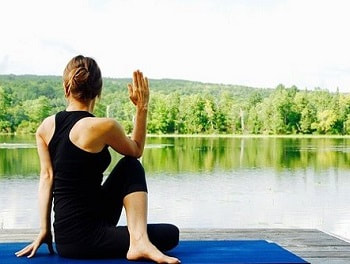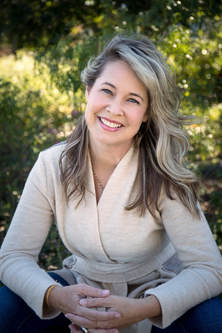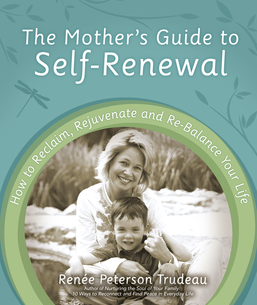Healthy Mind |
|
Self-Care is a Journey, Not a Destination
January 2018
By Renée Peterson Trudeau
Throughout my twenties and early thirties, I can honestly say that most of the time I was walking around with low-grade anxiety. I just never knew it.
I thought the following was normal:
In retrospect, I see now that my “busyness” was a way to distract myself from what I was really feeling below the surface. I assumed this was what life had to offer. You celebrated when the sun shined brightly and ran for cover when the storms came, but, overall, your daily experience was beyond your control.
A few weeks ago, I spoke to a management executive about presenting a work/life balance workshop to his employees. We talked for a while about the concept of well-being, and he chuckled when I asked how he defined self-care. “Oh yeah, I try to eat my apple a day and jog a couple of times a week.” But he looked at me quizzically when I persisted and asked if he was familiar with the concept of emotional self-care.
When it comes to nourishing and grounding myself, I begin my day intentionally with a 20-minute meditation session, but that doesn’t mean everyone must do this. There is no specific right way to practice emotional self-care. I also don’t see self-care as something you need to add to your to-do list; rather, it’s about cultivating a new relationship with yourself.*
My life is vastly different from 20 years ago. I remind myself that all the conscious choices and daily pivotal life/career decisions I’ve made - and continue to make - affect my sense of inner and outer harmony and have deeply impacted how I experience daily life.
My challenge for you is to consider:
As you explore these questions, please do so with both compassion and curiosity. I often suggest clients don a pretend lab coat and observe their responses as if they’re conducting a science experiment. Twenty lashes never helps bring about positive change, but a gentle, inquisitive approach often unlocks doors.
Something positive to leave you with: After 25 years of helping clients find work-life balance and practice regular self-care, I’ve never met anyone who didn’t ultimately discover that the answers they sought were as close as their next breath. They just had to slow down and get quiet enough to realize them.
*More on emotional self-care defined by Utah State University’s Counseling and Psychological Services department:
Mental/emotional self-care involves practices that maintain your mental strength and emotional health. Developing reasonable expectations of yourself is an important part of mental and emotional health. Your goal should be to stretch yourself, not break yourself. Learning to be more accepting, kind, and forgiving of yourself can reduce stress and anxiety, and can create a generally more balanced lifestyle. Focus on improving and expanding your social supports and create friendships with people who respect you and don't expect you to do all of the work to maintain the relationship.
I thought the following was normal:
- feeling not good enough at work (even though I was experiencing tangible success)
- agreeing to take on volunteer tasks and outside requests which I didn’t truly have the bandwidth for
- tolerating relationships and friendships that didn’t feed me
- frequently having tight shoulders and an upset stomach
- flying through my days often feeling tired, unsettled and restless
In retrospect, I see now that my “busyness” was a way to distract myself from what I was really feeling below the surface. I assumed this was what life had to offer. You celebrated when the sun shined brightly and ran for cover when the storms came, but, overall, your daily experience was beyond your control.
A few weeks ago, I spoke to a management executive about presenting a work/life balance workshop to his employees. We talked for a while about the concept of well-being, and he chuckled when I asked how he defined self-care. “Oh yeah, I try to eat my apple a day and jog a couple of times a week.” But he looked at me quizzically when I persisted and asked if he was familiar with the concept of emotional self-care.
When it comes to nourishing and grounding myself, I begin my day intentionally with a 20-minute meditation session, but that doesn’t mean everyone must do this. There is no specific right way to practice emotional self-care. I also don’t see self-care as something you need to add to your to-do list; rather, it’s about cultivating a new relationship with yourself.*
My life is vastly different from 20 years ago. I remind myself that all the conscious choices and daily pivotal life/career decisions I’ve made - and continue to make - affect my sense of inner and outer harmony and have deeply impacted how I experience daily life.
My challenge for you is to consider:
- On a scale of 1 to 10 (1 = I’m about to have a nervous breakdown and 10 = I’m feeling pretty blissed out), how would you rate your current state of emotional health on most days?
- On an average day, how do you feel physically? (Pause, close your eyes for a minute, breathe and put your hands on your chest.) Do you habitually have tight shoulders, discomfort in your chest or feel unease in your belly?
- How connected do you feel to yourself and others? Do you feel like you’re seen, heard and belong?
- Has life become one big to-do list? Do you feel like a robot mechanically moving from task to task?
- From where do you derive a sense of purpose?
- Do you feel like you can trust the “flow of life?”
As you explore these questions, please do so with both compassion and curiosity. I often suggest clients don a pretend lab coat and observe their responses as if they’re conducting a science experiment. Twenty lashes never helps bring about positive change, but a gentle, inquisitive approach often unlocks doors.
Something positive to leave you with: After 25 years of helping clients find work-life balance and practice regular self-care, I’ve never met anyone who didn’t ultimately discover that the answers they sought were as close as their next breath. They just had to slow down and get quiet enough to realize them.
*More on emotional self-care defined by Utah State University’s Counseling and Psychological Services department:
Mental/emotional self-care involves practices that maintain your mental strength and emotional health. Developing reasonable expectations of yourself is an important part of mental and emotional health. Your goal should be to stretch yourself, not break yourself. Learning to be more accepting, kind, and forgiving of yourself can reduce stress and anxiety, and can create a generally more balanced lifestyle. Focus on improving and expanding your social supports and create friendships with people who respect you and don't expect you to do all of the work to maintain the relationship.
|
Photo credit: Jeana Marino
|
Renée Peterson Trudeau is an internationally recognized life-balance coach, speaker and author of three books on life balance, including the award-winning The Mother's Guide to Self-Renewal: How to Reclaim, Rejuvenate and Re-Balance Your Life. Renée has been creating and leading transformative events for women for more than 20 years, and she is on the faculty of Kripalu Center for Yoga & Health and Esalen Institute. Thousands of women in more than 10 countries are facilitating self-renewal groups as RTA-Certified Facilitators, based on her award-winning self-care curriculum. A sought-after life balance media expert, Renée's work has been featured in The New York Times, US News and World Report, Good Housekeeping, and Spirituality & Health.
|
Click book cover for excerpt
Find Renée on
|
January Retreat Information:
New Way of Being: Women's Self-Renewal Retreat Jan. 26 - 28, 2018 Kripalu Center for Yoga & Health Lenox, MA Join Renée Peterson Trudeau for this deeply restorative, nurturing women's retreat. Tap into the transformative power of self-care. Enjoy authentic connection with like-minded women, explore a new way of being, and experience greater freedom, resiliency, and joy. For more information and to register: |





